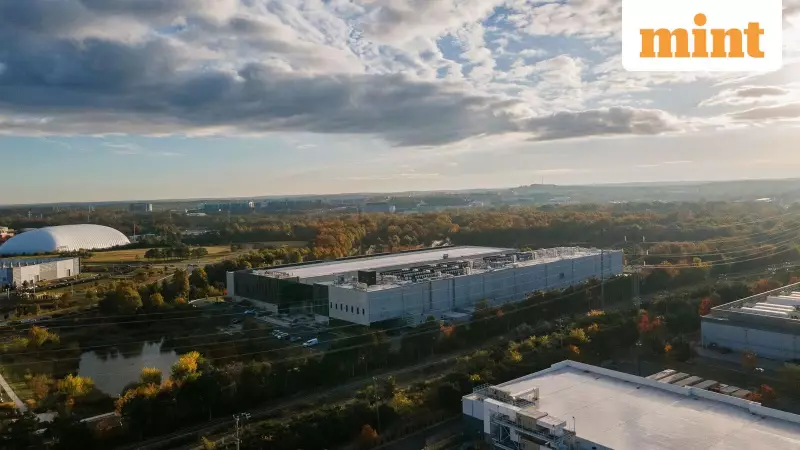
The AI Gold Rush: Wall Street's $300 Billion Bet
Wall Street is inventing unprecedented financial instruments to fuel the artificial intelligence revolution, with tech giants requiring staggering amounts of capital that traditional financing cannot accommodate. Three landmark deals involving Meta, OpenAI, and Elon Musk's xAI reveal both the enormous potential and significant risks in the AI investment frenzy that has captivated global markets.
The scale of financing has reached breathtaking proportions, with individual deals crossing $30 billion as companies race to build the infrastructure needed to power next-generation AI systems. This financial innovation comes at a critical moment when even industry leaders face investor skepticism about AI spending.
Meta's Financial Engineering: The Hyperion Data Center
Meta Platforms has embarked on one of the most creative financing arrangements in recent corporate history to build its massive Hyperion data center in Louisiana. The social media giant, which already issued a $30 billion bond in October that doubled its debt overnight, turned to Morgan Stanley for an innovative solution that keeps massive borrowing off its balance sheet.
The complex arrangement involves fund manager Blue Owl Capital investing approximately $3 billion for an 80% private-equity stake in the data center venture, while Meta retained 20% for the $1.3 billion it had already spent. The joint venture, whimsically named Beignet Investor after the famous New Orleans pastry, then issued $27 billion in bonds maturing in 2049, with Pimco purchasing $18 billion of this debt.
What makes this deal extraordinary is the protective guarantee Meta provided investors. While the company can exit its data center lease every four years, it agreed to make investors whole if it ever exercises this option. This creates fixed-income risk with equity-like returns, according to Blue Owl managing director Alexey Teplukhin.
The bonds carry a 6.58% interest rate—significantly higher than Meta's corporate bonds—reflecting the unique risk profile of these innovative financing structures.
OpenAI and Oracle: The Stargate Syndicate
Meanwhile, the partnership between ChatGPT-maker OpenAI, Oracle, and SoftBank involves an even larger undertaking called Stargate. This ambitious project requires building two massive data centers in Texas and Wisconsin at a combined cost of $38 billion, with OpenAI committing to a $300 billion purchase agreement with Oracle.
The financing challenge here stems from OpenAI's startup status and Oracle's relatively low credit rating for a tech giant. The solution emerged as a project-finance loan secured by the data centers themselves, similar to a mortgage arrangement. What's remarkable is the scale of the banking syndicate—typically such deals involve no more than a dozen banks, but the Stargate financing, named Jacquard, includes more than 30 financial institutions.
Global banks like BNP Paribas join regional players like U.S. Bancorp in a coordinated effort to spread the enormous risk. The loan pays approximately 6.4% interest and comes due in five years, but faces limitations in secondary markets due to its single credit rating from Kroll Bond Rating Agency rather than the major agencies.
Elon Musk's xAI Chip Gambit
Elon Musk is pursuing equally creative financing for his AI startup xAI, which needs $18 billion just to purchase 300,000 microchips required for its Colossus 2 data center in Tennessee. With xAI having raised at least $10 billion through share sales and debt, Musk turned to ally Antonio Gracias and his investment firm Valor Equity Partners for an indirect funding solution.
Valor committed to buy private equity in a special financing vehicle that would borrow additional billions from private-credit funds, all directed toward purchasing chips from Nvidia. The structure, called Valor Compute Infrastructure, could ultimately raise $7.5 billion in equity and $12.5 billion in debt, though the final amounts depend on investor appetite.
Private-credit powerhouse Apollo Global Management is helping arrange debt that would bear a 10.5% interest rate with potential additional payouts if chip values exceed certain thresholds. This arrangement highlights concerns about circularity between Nvidia and its clients potentially creating a market bubble.
Risks and Rewards in the AI Frenzy
The unprecedented scale of these deals worries some seasoned investors. Dan Ivascyn, chief investment officer at Pimco (which invested in Hyperion), noted that the debt deals now hitting the market are far larger than in past credit cycles. He expressed concern that extended economic stability has bred complexity and complacency in risk assessment.
Market reactions underscore these concerns. Meta's market value dropped by approximately $300 billion in just a few days after CEO Mark Zuckerberg warned about higher AI spending, spooking shareholders already nervous about a potential AI bubble.
Each time tech companies take on substantial new debt, their borrowing costs increase, creating a challenging financial environment even for cash-rich giants. Banks and fund managers continue writing large checks for now, but many privately worry about how these complex arrangements will perform when the current AI enthusiasm inevitably cools.
What's clear is that the AI arms race has moved beyond technology competition into the realm of financial innovation, with Wall Street developing increasingly sophisticated instruments to fund what may become the defining technological transformation of our era.






